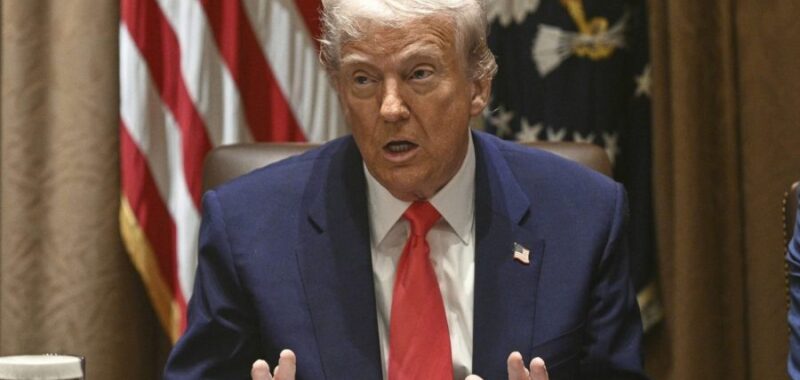
President Trump defended his move on Friday to exempt some electronics from the escalating tariff war with China.
He denied the announcement amounted to an “exception,” arguing instead the products were moved to a different tariff “bucket,” and suggested his administration could still impose separate tariffs for the semiconductor industry and broader electronics supply chain.
“There was no Tariff ‘exception’ announced on Friday,” Trump wrote in a Truth Social post on Sunday. “These products are subject to the existing 20% Fentanyl Tariffs, and they are just moving to a different Tariff ‘bucket.’”
“We are taking a look at Semiconductors and the WHOLE ELECTRONICS SUPPLY CHAIN in the upcoming National Security Tariff Investigations,” he added.
U.S. Customs and Border Protection, which collects duties on imports, issued updated guidance on Friday indicating roughly 20 products — including smartphones, computers, routers and semiconductor chips — would be excluded from the “reciprocal” tariffs imposed on countries including China.
Trump has ratcheted up reciprocal tariffs on China to 125 percent on top of 20 percent levies, as he has put a 90-day pause on reciprocal tariffs for other countries, leading to a proportionate response from Beijing.
That has escalated fears of a massive trade war between the world’s two largest economies.
In his post on Truth Social, Trump blasted the media for covering the Friday guidance as a softening in his position on China.
“NOBODY is getting ‘off the hook’ for the unfair Trade Balances, and Non Monetary Tariff Barriers, that other Countries have used against us, especially not China which, by far, treats us the worst!” Trump wrote in his Truth Social post.
Trump’s remarks coincide with Commerce Secretary Howard Lutnick saying on Sunday that the tariff exemptions for smartphones and other electronics would only be temporary.
“This is not like a permanent sort of exemption. [Trump’s] just clarifying that these are not available to be negotiated away by countries. These are things that are national security, that we need to be made in America,” Lutnick told ABC’s “This Week.”
Karoline Leavitt, the White House spokeswoman, said in a statement on Saturday Trump was still committed to seeing more of the exempted products and components made domestically.
“President Trump has made it clear America cannot rely on China to manufacture critical technologies” and that at his direction, tech companies “are hustling to onshore their manufacturing in the United States as soon as possible,” she said.

